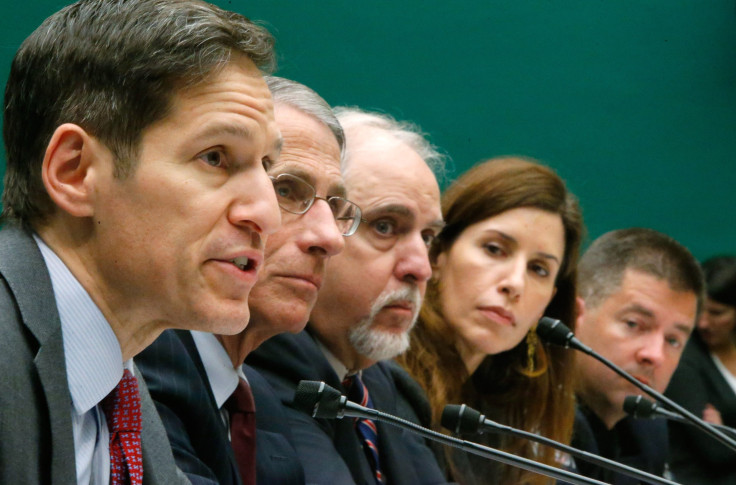Ebola Threat To US: Most Americans Confident US Government Could Stop An Epidemic

A majority of Americans are confident that the U.S. government could stop an Ebola epidemic in America, according to a recent poll from CNN and ORC International. Seven in 10 Americans said they thought the federal government is equipped to handle an outbreak in the country, and more than 5 in 10 Americans said they believed the government has done a “good job” preparing the country for Ebola, a disease that has killed nearly 5,000 people across West Africa since March.
The poll found that 1 in 4 Americans thought that someone in their area will become infected with the virus in the next few weeks. "Most Americans seem to recognize that they are not in personal jeopardy themselves," CNN Polling Director Keating Holland said. "In fact, the vast majority of Americans probably don't know anyone who has ever been to West Africa."
Polling coordinators interviewed 1,018 adult Americans by telephone on Oct. 24-26, according to CNN. Interviewees included both landline and cell phone respondents and registered voters as well as likely voters.
While health experts have said the likelihood of an outbreak of Ebola in the U.S. remains low, many Americans remained on edge for weeks after Thomas Eric Duncan, a Liberian national who contracted the virus in West Africa before arriving in the U.S. in September, died from the disease at a hospital in Dallas. Two nurses who were in contact with Duncan became ill with Ebola shortly after his death, however the dozens of family members, friends and other health workers who were close to Duncan didn't get the virus. That didn't stop some Americans from holing themselves up in their homes or keeping their children out of school over fears of the virus spreading.
U.S. lawmakers have tried to balance public concern over the virus with science that says the virus isn't easily transmissible and can only be passed from one individual to another once a patient develops symptoms, including fever, vomiting and diarrhea. Five of the country’s busiest airports started screening passengers coming from West Africa for signs of infection earlier this month. Several states have taken advantage of policies that allow authorities to quarantine people suspected of posing a significant threat to public health, something that health experts have criticized as counterproductive to control efforts in West Africa. Several health care workers who traveled abroad to treat Ebola patients in Guinea, Liberia and Sierra Leone have faced compulsory quarantines upon returning to the U.S., even though they were asymptomatic. Health experts feared that these quarantines could exacerbate the epidemic abroad by discouraging U.S. doctors and nurses from traveling to West Africa to help fight the outbreak.
© Copyright IBTimes 2024. All rights reserved.






















